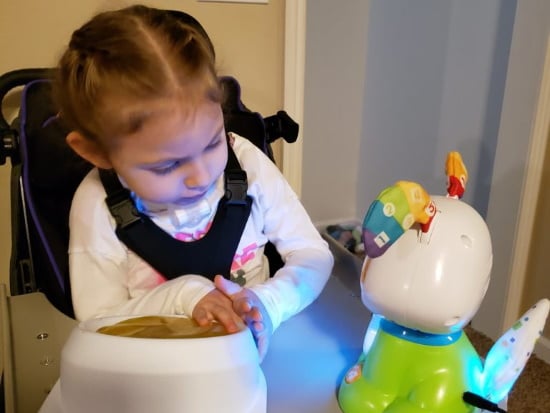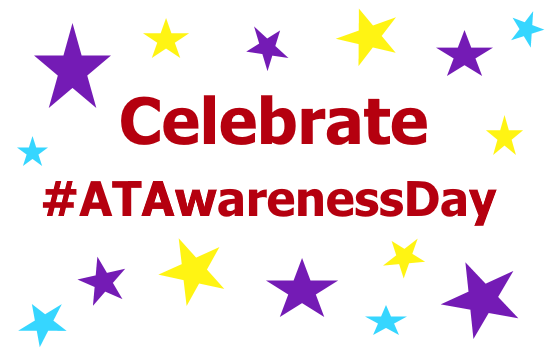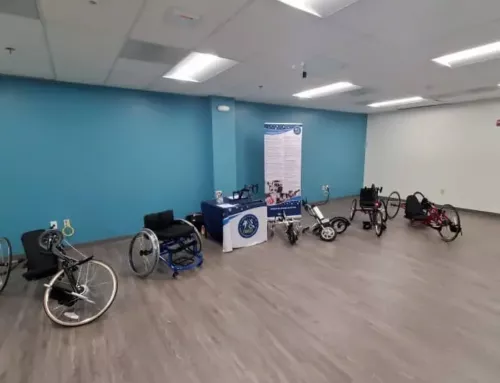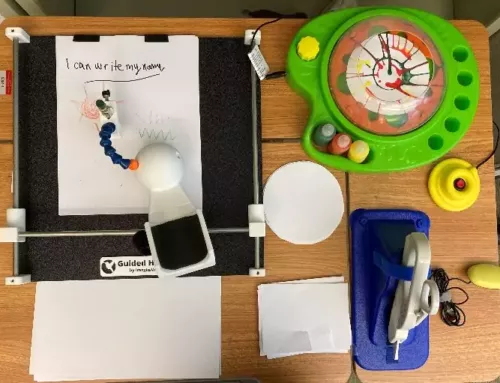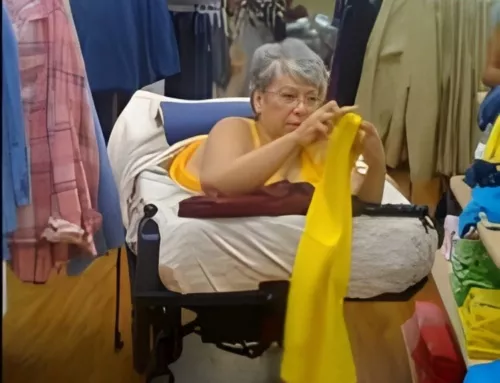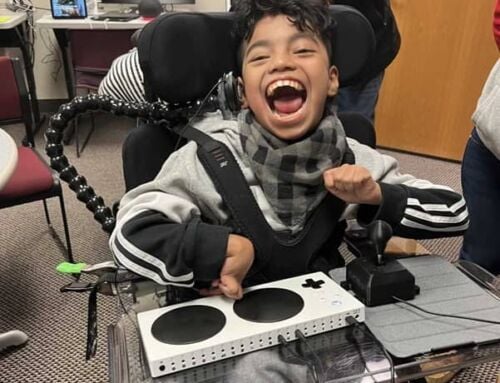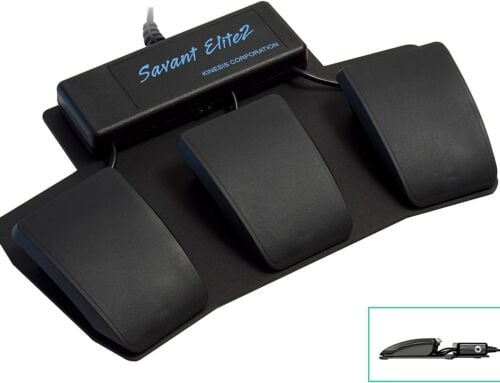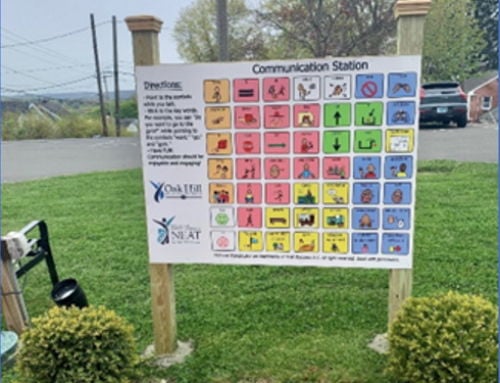A.T. Programs Respond to Vaccine Rollout
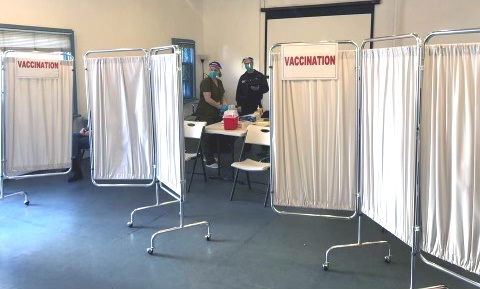
State and Territory Assistive Technology (A.T.) Programs are going the extra mile to help with accessible vaccine distribution.

As individuals with disabilities, seniors, families, and caregivers across the country are signing up for vaccinations to protect themselves and prevent the spread of the virus, A.T. Programs are pivoting to provide services, equipment, and expertise to help vaccine dissemination reach those most at risk.
A.T. Programs report a range of developing and ongoing activities to support an accessible and welcoming vaccination process. These include:
- Disseminating up-to-date information on where to go to be vaccinated and ensuring document accessibility.
- Assisting with website accessibility remediation, so that vaccine registration is navigable by persons with cognitive and/or sensory disabilities.
- Advising on the use of assistive technology at mass vaccination sites.
- Providing assistive technology to mass vaccination sites.
- Conducting onsite reviews and accessibility checks at vaccination sites.
- Working directly with providers of vaccine distribution.
Many A.T. reuse programs—an activity of all State and Territory A.T. Programs—are providing rollators and wheelchairs to improve stamina for those having to wait in line for extended periods. AT toolkits, assembled for use at emergency shelters, are playing a dual purpose among some states, additionally supplying needed A.T. to mass vaccination sites.
A.T. Program Highlights:
California
Ability Tools works closely with CA’s Governor’s Office of Emergency Services and a year ago began providing PPE through its network of A.T. and Independent Living Centers. Since then, the program has joined the state’s task force on vaccines to advise on website accessibility remediation as well as integrating accommodations questions into the MyTurn registration system. MyTurn is now accessible and increasingly adopted beyond California. Ability Tools is also hosting pop-up vaccination sites, which began as a pilot that FEMA has since identified as establishing best practices (for integrating accessible seating, assistive technology, accessible information, ASL, and additional interpreters).
“Everyone who comes to be vaccinated goes home with a goody bag with information about our full range of disability services as well as PPE.”
Christina Mills, Ability Tools Director
The program is about to launch a vaccine consumer toolkit in English and Spanish that will be disseminated among disability organizations statewide.
North Carolina:
The NC AT Program began working on COVID-19 response a year ago, providing technical assistance to the Department of Health and Human Services on state website accessibility for COVID-19 information. The program’s work has since expanded to engage private health systems to remediate the accessibility of vaccine registration sites and is working with the Department of Public Health and other state agencies on guidance to providers (private, state, and federal) on the physical accessibility of vaccination sites and the vaccination process.
The program is loaning assistive technology for use at vaccination sites, such as iPads with communication apps, low-tech medical communication boards, magnifiers, and manual wheelchairs, as well as coordinating onsite accessibility reviews.
“I anticipate the role of AT will continue stepping up as we move into vaccinating Group 4 in North Carolina. North Carolina is looking at different options for continuing to serve those historically marginalized as we reach out to high-risk at-home populations. We’re teaming across state agencies that serve individuals with disabilities and seniors; those conversations are going on right now. It’s a dynamic situation, but everyone is learning to do this at the same time, and everyone is working great together.”
Tammy Koger, Director of the NC Assistive Technology Program.
Read the complete AT3 Center Issue Brief on the Vaccine Rollout
Monthly Blog Digest
Search the blog
State AT Program Blogs
California
Florida
Indiana
Kentucky
Louisiana
Maryland
Massachusetts
Michigan
Montana
North Carolina
North Dakota
Utah
State AT Program Blogs
The AT3 Center, the Association of AT Act Programs (ATAP), and the Administration on Community Living (ACL) make no endorsement, representation, or warranty expressed or implied for any product, device, or information set forth in this blog. The AT3 Center, ATAP, and ACL have not examined, reviewed, or tested any product or device hereto referred.

